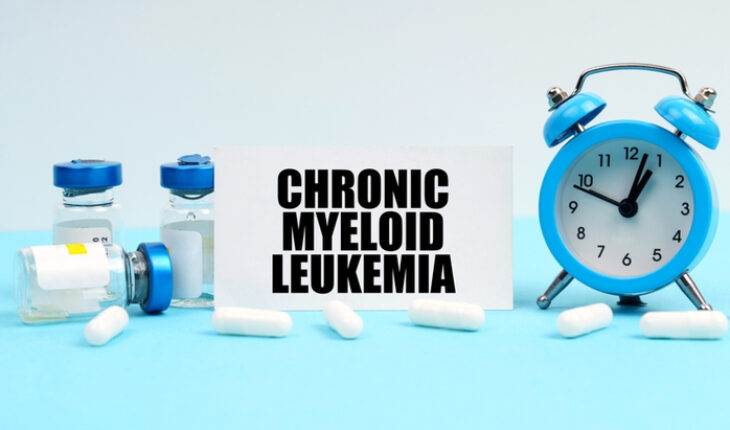Revolution in care of leukaemia as new treatment drug approved for cancer patients: Asciminib for Chronic myeloid leukaemia CML works differently to existing treatments, giving hope to patients who need a different approach.
The charity Leukaemia Care today welcomes the news from the National Institute for Health and Care Excellence that a new cancer treatment drug asciminib has been approved for NHS use in chronic myeloid leukaemia (CML) patients after two or more tyrosine kinase inhibitors (TKIs).
Leukaemia Care submitted evidence to NICE advocating for the approval of asciminib before the decision was made. By being a consulted patient organisation in the process, the charity were able to contribute patient opinions, evidence and experiences advocating for access to this important treatment.
Chronic myeloid leukaemia (CML) is a cancer that was once fatal, unless a patient was fit enough for bone marrow or stem cell transplant. Transplantation is only suitable for the fittest patients, and comes with significant side effects including infection. Asciminib is the latest in the line of treatments that changed this for the better. It is a tyrosine kinase inhibitor (TKI) that targets and kills cancer cells allowing treatments to bind to a protein. The first CML TKI, dubbed a ‘golden bullet’ treatment, was called Imatinib and turned CML from a fatal cancer into a long term illness. Over the years, four other TKIs have been developed including bosutinib, ponatinib, dasatinib and nilotinib. Essentially this means that patients need only take a tablet a day to keep the leukaemia cells at bay.
Now with patients increasingly being told they are likely to live a near-normal life expectancy, the estimated 25 per cent of CML patients who do not respond to the treatments wondered what was left for them.
This has led to the development of asciminib, a sixth TKI, which is set apart from the rest as it binds to a different part of the target protein, meaning it is often effective in people who are resistant to other treatments. Some CML cells can edit the target protein in a way that stops the original TKIs binding as well, causing the TKIs to stop working. Because asciminib binds to a different part of the protein, it even works on CML cells with the altered protein.
While TKIs have saved many lives, they come with side effects with fatigue being a common one. Fatigue can be hard to treat, leaving many unable to work as a result. Asciminib represents a chance for these patients to try a TKI that may not have the same side effects and give them a chance to engage with everyday activities.

Zack Pembleton-Whitey welcomes the approval of asciminib by NICE and was pleased that Leukaemia Care’s played a key part in the approval process
Chief Executive of Leukaemia Care Zack Pembleton-Whitey, said: “Leukaemia Care welcomes the approval of asciminib by NICE, providing an additional treatment option for CML patients. We are pleased to have been involved throughout NICE’s process to make asciminib available on the NHS in England. Having access to a treatment which works differently from other CML treatments is an exciting advancement and will be welcome news for many patients and their families.”
However, Leukaemia Care would like to see this treatment be more widely available for patients in the future, such as it being an option that doctors and patients can use earlier on, without a patient needing to try as many as two previous drugs beforehand.
This announcement comes as the charity sector awaits a response from the Secretary of State for Health and Social Care on his plans for a new 10 year cancer plan. One of the ambitions of the plan is to increase access to personalised care. Drugs that improve both quality of life and increase options for patients, such as asciminib, are set to play a role in this ambition.
- Chronic myeloid leukaemia (CML) is a type of cancer, affecting the white blood cells, that develops slowly but is life-threatening like other cancers if allowed to develop without close monitoring and treatment. It is treatable but incurable. White blood cells are important for fighting infection in your body, but they must develop properly in your blood to do this. Leukaemia occurs when you produce too many immature cells that cannot work properly to fight off infection. CML is most common in people aged 65 and over and affects around 650 people a year.
- Leukaemia Care is the largest leukaemia specific charity in the UK. We work to improve the lives of all those diagnosed with leukaemia, MDS, or MPNs.
- Leukaemia Care aims to be involved in every appraisal of treatments for leukaemia, MDS, and MPNs in all nations of the UK.
- All TKIs treat CML by binding to the protein BCR-ABL. The protein that is made by the Philadelphia chromosome and causes the CML cells to multiply. How asciminib is different is that while it is a TKI, it targets a different binding site than all other TKIs (the myristoyl binding site, rather than the ATP binding site). Some CML cells can edit the BCL-ABL protein in a way that stops the TKI binding as well, causing the TKI to stop working. Because asciminib binds to a different part of the protein, it even works on CML cells with the protein that has changed in a way that stops the other TKIs working (resistance to TKIs).
- New lipid-based pathway discovered as key to memory formation - 25th June 2025
- Crucial link could explain how Alzheimer’s takes hold - 25th June 2025
- Understanding Your Mind Can Improve Daily Life - 25th June 2025







